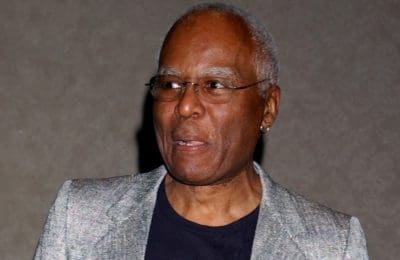
Another warrior for Black rights has made his transition to the spirits of our ancestors. Esteemed scholar and an original member of the Black Panther Party Dr. Ahmad Rahman died last Monday, he was 64.
Rahman was born in 1951 in Chicago, from an early age Rahman exhibited high intellect. As a high school student he scored so high in testing he was told by a guidance counselor that he would be the “first colored student to go to Harvard,” instead Rahman joined the Chicago branch of the Black Panther party under the leadership of Fred Hampton. Rahman joined the Black Panthers at the height of the Black Nationalist movement that was sweeping through many urban areas across the United States. His involvement with the Panthers made him a target of the FBI’s infamous COINTELPRO program.

In 1971, Rahman and three other members of the Detroit chapter of the Black Panther Party led a raid on a notorious heroin den masquerading as a student commune. During the raid a man named Franklin Abramson, 23, was shot and killed. This led to Rahman and his fellow Panthers being arrested. Rahman was convicted of felony murder and sentenced to life in prison. The man who actually shot and killed Abramson was freed in 1983.
While in prison Rahman relied on his deep devotion to Islam and continued to seek education. He attained his bachelor’s from Wayne State University, majoring in urban humanities and sociology. He then went on to become the first prisoner ever to be admitted into a graduate program at the University of Michigan-Ann Arbor, where he earned both a master’s and doctorate. There was a nationwide campaign calling for his release from prison led by Detroit Free Press journalist James Ricci, university professors and then-Detroit Mayor Coleman Young. The law under which Rahman was sentenced had been invalidated by the Michigan Supreme Court. Michigan Gov. John Engler commuted the sentence of Rahman and he was released in 1992 at the age of 41. Rahman began to almost immediately get involved with the civil rights struggle and worked at the Interfaith Council for Peace and Justice. He became a professor at the University of Michigan-Dearborn in 2004 and authored The Regime Change of Kwame Nkrumah: Epic Heroism in Africa and the Diaspora, and numerous articles related to the Black struggle in America.
Rahman wrote about his life focus: “I am motivated by a drive to make a difference for those persons I see in need. They are quite often ‘the least of these.’ Much of the energy of us academics goes toward achieving status within academia. Many of the best minds that could challenge and solve problems in the inner city are exclusively occupied writing academic books and articles that have no impact on the most important issues facing Black America. I have sought to avoid this ivory tower phenomenon. I have always worked to balance academic achievement with what I regard as the more important goals for Detroit of achieving real solutions. At one time during my youth I called myself a revolutionary. Now I see myself as more of a solutionary.”









